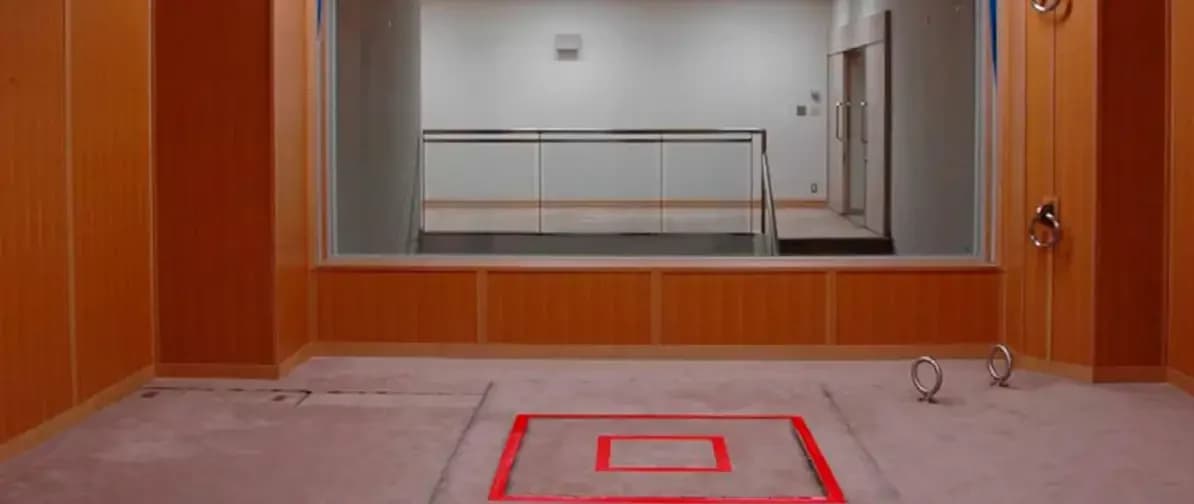The archbishop of Tokyo, Cardinal Isao Kikuchi, is renewing calls for abolition of the death penalty in Japan and for clemency for two men, one convicted of murder and already sentenced to death, the other awaiting sentencing.
In 2023, Masanori Aoki stabbed two women in the city of Nakano and then shot two policemen with a hunting rifle. His defense team asked for a lesser sentence, saying the man suffered from schizophrenia, but the sentencing court imposed the death penalty on Oct. 14.
The next day, prosecutors in Japan said they would seek the death penalty against another man, Hideaki Nozu, who admitted to killing three close family members and gravely wounding another with a crossbow in June 2020. Hideaki Nozu is to be sentenced on Oct. 31.
Japan and the United States are the only Group of Seven (G7) nation to carry out capital punishment.
Kikuchi noted the verdict against Aoki is not yet final, since the defense attorney immediately announced their intention to appeal.
“The defense’s argument highlighted that the defendant suffers from schizophrenia and emphasized the extreme rarity of firearm-related crimes in Japan, a nation known for its exceptionally strict gun control laws,” the cardinal told Crux.
He was speaking with Crux after receiving his titular church of San Giovanni Leonardi in Rome.
“The Catholic Church in Japan opposes capital punishment, calling for the protection of all life as a gift from the Creator. The Church urges the government to abolish the death penalty and reform the Japanese criminal justice system,” he said.
“This call faces strong governmental resistance, however, as the state frequently cites a 2014 survey indicating that 80 percent of the general public accepts capital punishment as a necessary form of justice,” Kikuchi said.
“I absolutely condemn the cruel crime of taking four lives, and the person responsible must certainly be held accountable for the crime committed,” the cardinal added.
“However, accountability must include a rehabilitation process that leads the individual to understand the immeasurable value of human life and the need to protect it at all costs. While I detest such crimes, I fundamentally believe that if we uphold the value of human life and dignity, we must not employ the same method as the criminals by taking a life away,” he told Crux.
on June 27, 2025, after three years without an execution in Japan, authorities executed Takahiro Shiraishi, a notorious serial killer.
Amnesty International says executions in Japan are shrouded in secrecy, with prisoners typically given only a few hours’ notice and their families usually notified about the execution only after it has taken place.
Concern over the use of the death penalty in Japan increased last year, when Hakamada Iwao was acquitted after spending 45 years in prison awaiting capital punishment for a crime he didn’t commit.
“We must also acknowledge the significant systemic issues surrounding the death penalty in Japan,” Kikuchi said.
“Currently, 105 individuals sentenced to death remain held in custody, some for decades; one person was sentenced in 1970 and has still not been executed,” the cardinal said.
“This situation underscores the grave risk of irreversible error, as evidenced by the case of Mr. Iwao Hakamada. He was sentenced to death in 1980 for a murder he did not commit and spent 47 years in custody before his innocence was finally proven on Oct. 9 last year,” he told Crux.
“Defense teams continue to claim false accusation in other death row cases. Since human beings are fallible and mistakes are inevitable, the possibility remains that innocent individuals may have been executed in the past,” the cardinal said.
“Furthermore, the retrial procedure in the Japanese legal system is notoriously complicated and difficult to pursue. Mr. Hakamada and his supporters are now advocating for necessary legal changes to broaden access to retrials,” Kikuchi explained.
He told Crux that in view of all these circumstances, the systemic flaws, the protracted custody of inmates, and the foundational value of human life and dignity, ”I cannot accept the death penalty as a standard form of punishment.”















